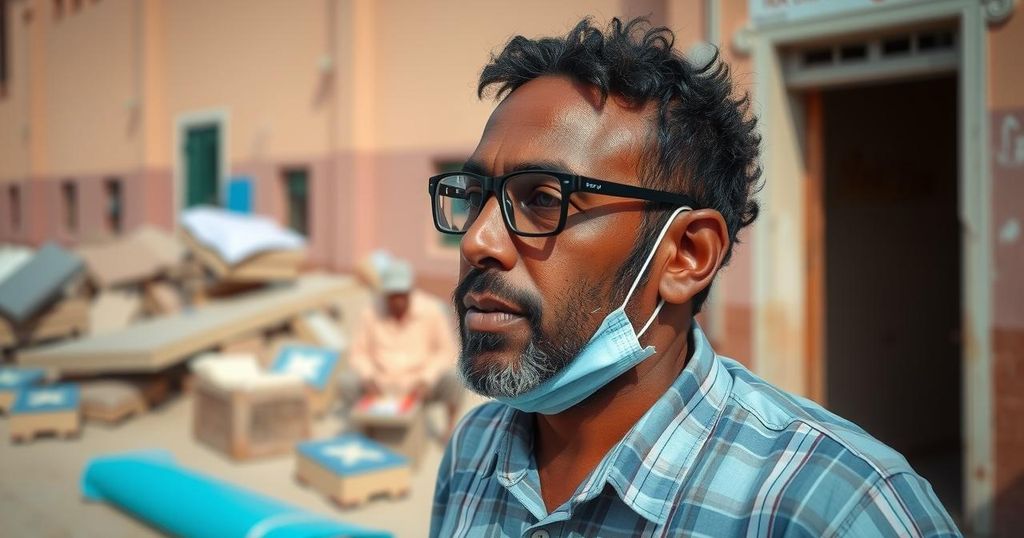Moroccan Activist Sentenced for Criticizing Government’s Earthquake Response

Said Ait Mahdi, a Moroccan activist, was sentenced to three months in prison for defamation linked to his criticism of the government’s response to the 2023 El Haouz earthquake. While three of his colleagues were acquitted, he faces additional financial penalties and plans to appeal the court’s decision. The earthquake had devastating impacts on the region, prompting urgent calls for aid and reconstruction.
A Moroccan activist critical of the government’s handling of the 2023 El Haouz earthquake has been sentenced to three months in prison for defamation, according to his legal representatives. Said Ait Mahdi, who leads an advocacy group for earthquake victims, has been in custody since December 23. Charges against him included defamation and insulting public officials, stemming from complaints regarding offensive social media posts. While Ait Mahdi was convicted, three of his colleagues were acquitted. He is also required to pay damages totaling 10,000 dirhams ($1,000) to each complainant. Ait Mahdi plans to appeal the court’s decision.
The El Haouz region, affected by a catastrophic 6.8 magnitude earthquake in September 2023, saw tremendous loss, with approximately 3,000 fatalities and 5,600 injuries reported. The destruction extended to 60,000 homes within the High Atlas mountains, forcing many families to cope with winter conditions while living in tents. Ait Mahdi’s group has been advocating for expedited reconstruction efforts and enhanced support for affected areas.
In a response to the disaster, the Moroccan government has reportedly issued 57,000 reconstruction permits, leading to the rebuilding or ongoing construction of over 35,000 homes. Furthermore, the government has committed $11 billion to a comprehensive five-year initiative aimed at reconstruction and development across the six provinces impacted by the earthquake.
The article discusses the case of Said Ait Mahdi, a Moroccan activist whose imprisonment highlights tensions between government authorities and civil advocacy groups. Following the devastating earthquake in El Haouz, the affected communities faced challenges in recovery and rebuilding, igniting calls for swift government action and support. Ait Mahdi’s sentencing raises concerns about freedom of speech and government accountability in the wake of natural disasters, as public criticism is met with legal repercussions.
In conclusion, the case of Said Ait Mahdi serves as a significant example of the ongoing struggle between civic advocacy and governmental authority in Morocco. His conviction on charges of defamation for criticizing the government’s earthquake response invites scrutiny concerning freedom of expression in political discourse. As communities continue to recover from the devastating impact of the earthquake, the need for transparency and accountability in governmental actions remains critical. Ait Mahdi’s intention to appeal the ruling may further spotlight these issues in the public arena.
Original Source: newscentral.africa







